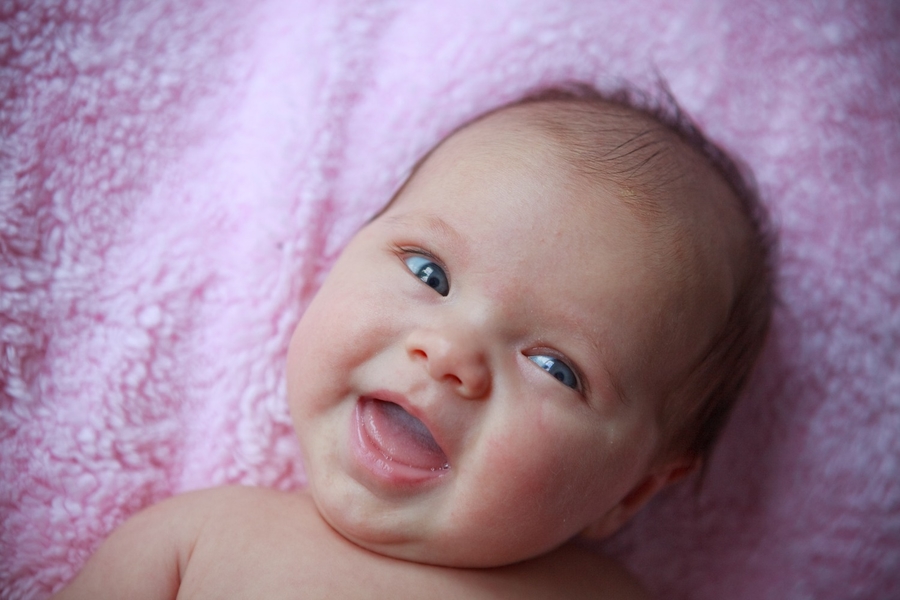
Recognizing Developmental Delays In Babies
23 Mar 2018 | 5 min Read
Babychakra
Author | 1369 Articles
Every parents wishes nothing but the best for their child, but recognising early signs of developmental delay in babies can help avert a host of problems lifelong.
What is meant by developmental delay in children?
Every baby grows and develops at his/her own pace and the normal range for every milestone is quite wide. It is very important that a parent knows about the signs that indicate their child may not possess the skills of kids at the same age. In medical terms, this is known as developmental delay.
Often, these delays are not serious and most babies can catch up with their peers and show normal development with time. Early diagnosis and intervention is the key to ensure this. It is however, important to remember that babies do not adhere to a strict growth timetable. For instance, some babies learn to walk as early as 9 months while others take their first steps at 15 months. Both these babies fall in the typical range of development. Such minor time gaps are not a cause of concern.
A developmental delay is much more than just being slower than other babies. It indicates that the child is continually lagging in more than one skill that other kids of his age possess.
A baby who still doesn’t roll at 4 months may be lagging in one skill. But if he is not able to hold his head or push himself up when lying down, he’s showing delay in more than one motor skills, which is considered to be one of the signs of developmental delay in infants.
What are the areas of developmental delays in toddlers?
Developmental delays can be seen in one or more areas. When toddlers show delays in two or more areas, it is known as global developmental delay.
Babies develop skills in the following areas:
- Cognitive or thinking skills: This deals with the ability to think and solve problems. Babies are often curious to explore the world around them and are constantly processing new inputs with their eyes and ears. In older babies, it also includes counting, learning new words, naming colours, identifying animals, etc.
- Emotional and social skills: This deals with the expression and control of one’s emotions. Babies develop these skills by smiling at others or making sounds while communicating with people. In pre-schoolers, it is reflected in the form of asking for help, developing feelings and expressions, and forming social playgroups.
- Speech and language skills: With the help of these skills, babies learn to understand and use language. Babies learn to coo and babble. In toddlers and pre-schoolers, it means understanding what is said to them and learning to use correct words.
- Gross and fine motor skills: This includes the ability to use large group of muscles (gross motor) and small muscles of the limbs (fine motor). Babies make use of their gross skills to sit, walk, jump etc., whereas fine motor skills are commonly used to pick objects. Toddlers use fine skills to draw, hold a small vessel and work with blocks and other objects.
- Daily activities: This includes dealing with daily tasks like eating, drinking, passing urine, etc.
Factors that cause developmental delays are many, and include:
- Complications at birth like premature baby, low birth weight
- Exposure to drugs and/or alcohol during pregnancy
- Poor nutrition in mother
- Chronic illnesses
What are the signs of developmental delay in babies?
Signs of cognitive delay are noted when the child:
- Does not look for hidden objects
- Does not make gestures like waving
- Does not point to pictures
- Does not follow simple instructions
- Cannot identify common objects like spoon, brush
- Fails to imitate actions or words
Possible signs of social and emotional delay are:
- Failure to interact with adults, parents and other children
- Failure to respond when his/her name is called out
- Failure to recognize familiar sounds
Signs of motor delay are seen in a child who
- Fails to grasp objects
- Cannot support the head
- Fails to bring objects to the mouth by 4 months
- Does not push with legs
- Cannot sit without help even after 7 months
- Does not crawl or stand with support even after 1 year
- Does not walk by 18 months
- Unable to push a wheeled toy by 2 years
Signs of speech delay in a child are worrisome when he
- Does not respond to loud noise
- Cannot babble
- Does not use single words like mama, papa by 1 year
- Cannot speak 15 words by 2 years
Management of developmental delay in children
There is no specific cause of developmental delays. These delays could be an early sign of learning disorders or could be a genetic disorder. Hence, early detection is important to help the baby to develop further skills.
Management consists of individualized plans, tailored for the baby according to the age and the areas in which a delay is noted. Modalities that can be used include speech therapy, physical therapy, behaviour therapy, etc. It is crucial to check for hearing and vision loss as these can commonly simulate developmental delay. One should remember that support and patience form the foundation of management in such cases.
A


Related Topics for you
Suggestions offered by doctors on BabyChakra are of advisory nature i.e., for educational and informational purposes only. Content posted on, created for, or compiled by BabyChakra is not intended or designed to replace your doctor's independent judgment about any symptom, condition, or the appropriateness or risks of a procedure or treatment for a given person.
